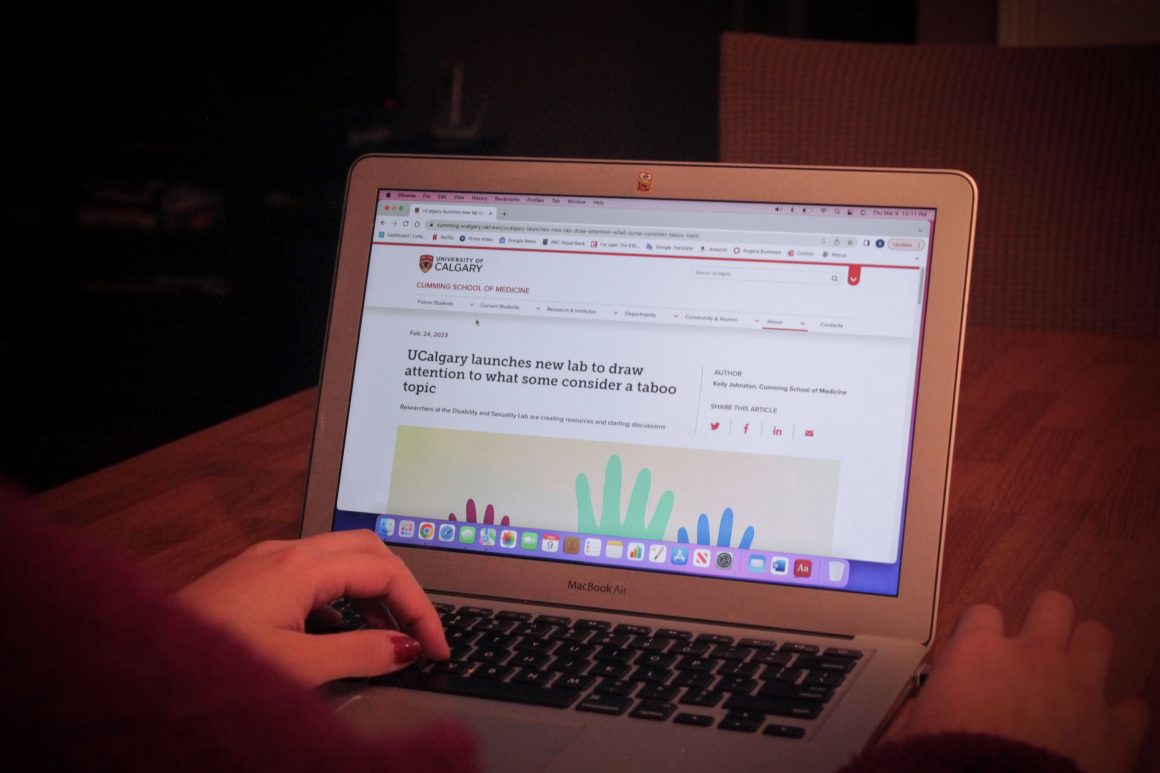
U of C’s Disability and Sexuality lab mobilizes resources surrounding the sexual education gap for people with disabilities
By Julieanne Acosta, March 27 2023—
A community outreach lab titled the Disability and Sexuality lab at the University of Calgary is looking to promote social change by providing resources to end the silence around disability and sexuality.
Often a taboo topic, many do not discuss sexuality for people with disabilities which can pose significant risks to individuals with disabilities as research assistant Naomi Eastman describes in an interview with the Gauntlet.
“We find that because it’s an area of such silence, it’s actually making people with disabilities much more vulnerable to sexual abuse, violence and of being taken advantage of by things like romance scams,” said Eastman. “A lot of our work within the lab is to try and bring attention to that and talk about why it’s important to keep these conversations going.”
Dr. Alan Martino, the lab lead of the research, talked about how the lab is working to co-create their resources with various communities
“The lab is really about this idea of collaborating with community. Everything we do is in partnership — so all materials we create come from ideas that we got from service providers, family members or people with disabilities themselves who are telling us what their needs are,” Martino explained. “Another thing that makes us unique is that when people talk about visibility and sexuality they only focus on harm and risks — there’s always the negative aspects of sexuality. But this lab is about everything related to sexuality, of course addressing those important areas like safety but also the good side of it, which is often left out.”
Eleni Moumos, a research assistant at the lab, touched on how they’re working to mobilize this topic to help educate the community.
“Mobilization is a big thing in our lab. So we’re creating a dictionary that is accessible so that terminology can be simplified and visuals so that everyone can understand these complicated topics,” said Moumos. “A lot of the time it can be really difficult to find resources and it can be complicated and lead you astray. So we really want to create those safe spaces to bring awareness and advocate for topics that need to be talked about more and really mobilizing those ideas.”
Martino notes that this lab has been something he’s been hoping to create for a while and why it’s important to have these conversations.
“It has always been a dream of mine to create a resource hub that would be available to the community with accessible creative material that can be a resource for everyone at any time and hopefully serve as a conversation starter for this topic,” said Martino. “Even in media, I found that there’s so much more conversations about disability sexuality. Now, we have TV shows like As we see it on Amazon Prime or Love on the spectrum on Netflix. It’s amazing to see that the topic is getting more recognition and more people recognizing the need for this.”
Moumos spoke on how reaching out to Martino really helped her find her place in the lab.
“I feel like a lot of people have asked me about how I got into research. I emailed Alan about my interest in the topic and from there, I felt like we got to understand what my interests were and how they connected with Alan’s so there’s always space for what you’re interested in,” said Moumos.
The lab is always looking for more opportunities to expand and the three encourage students to reach out.
“We’re always seeking to grow and students can share whatever skills they would like to share,” said Martino.
“We have a contact us area on our website that students can reach out from. Maybe tell us a bit about what your interests are and what you’d want to help with — we’d love to help,” Eastman added.
To learn more about the lab and to get involved visit disabilitysexualitylab.com
